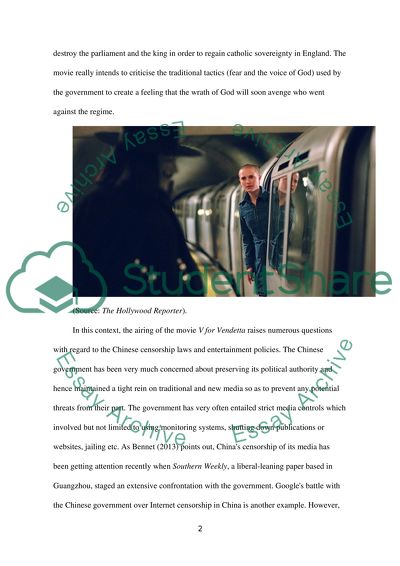Cite this document
(“The airing of V for Vendetta on Chinese state television- its positive Essay”, n.d.)
The airing of V for Vendetta on Chinese state television- its positive Essay. Retrieved from https://studentshare.org/journalism-communication/1471175-the-airing-of-v-for-vendetta-on-chinese-state
The airing of V for Vendetta on Chinese state television- its positive Essay. Retrieved from https://studentshare.org/journalism-communication/1471175-the-airing-of-v-for-vendetta-on-chinese-state
(The Airing of V for Vendetta on Chinese State Television- Its Positive Essay)
The Airing of V for Vendetta on Chinese State Television- Its Positive Essay. https://studentshare.org/journalism-communication/1471175-the-airing-of-v-for-vendetta-on-chinese-state.
The Airing of V for Vendetta on Chinese State Television- Its Positive Essay. https://studentshare.org/journalism-communication/1471175-the-airing-of-v-for-vendetta-on-chinese-state.
“The Airing of V for Vendetta on Chinese State Television- Its Positive Essay”, n.d. https://studentshare.org/journalism-communication/1471175-the-airing-of-v-for-vendetta-on-chinese-state.


